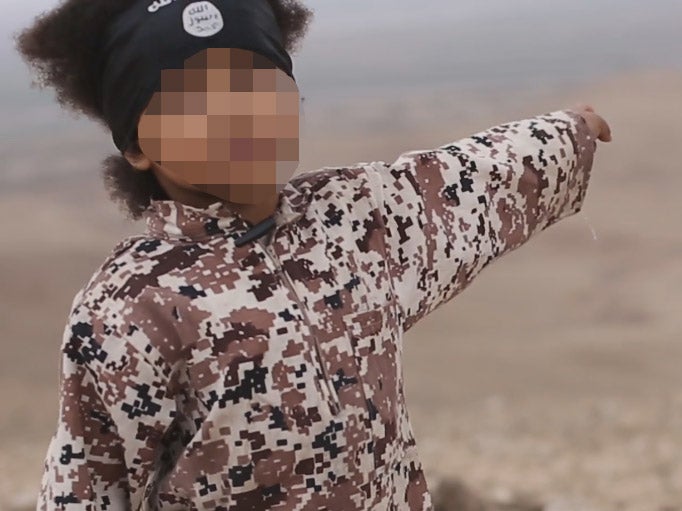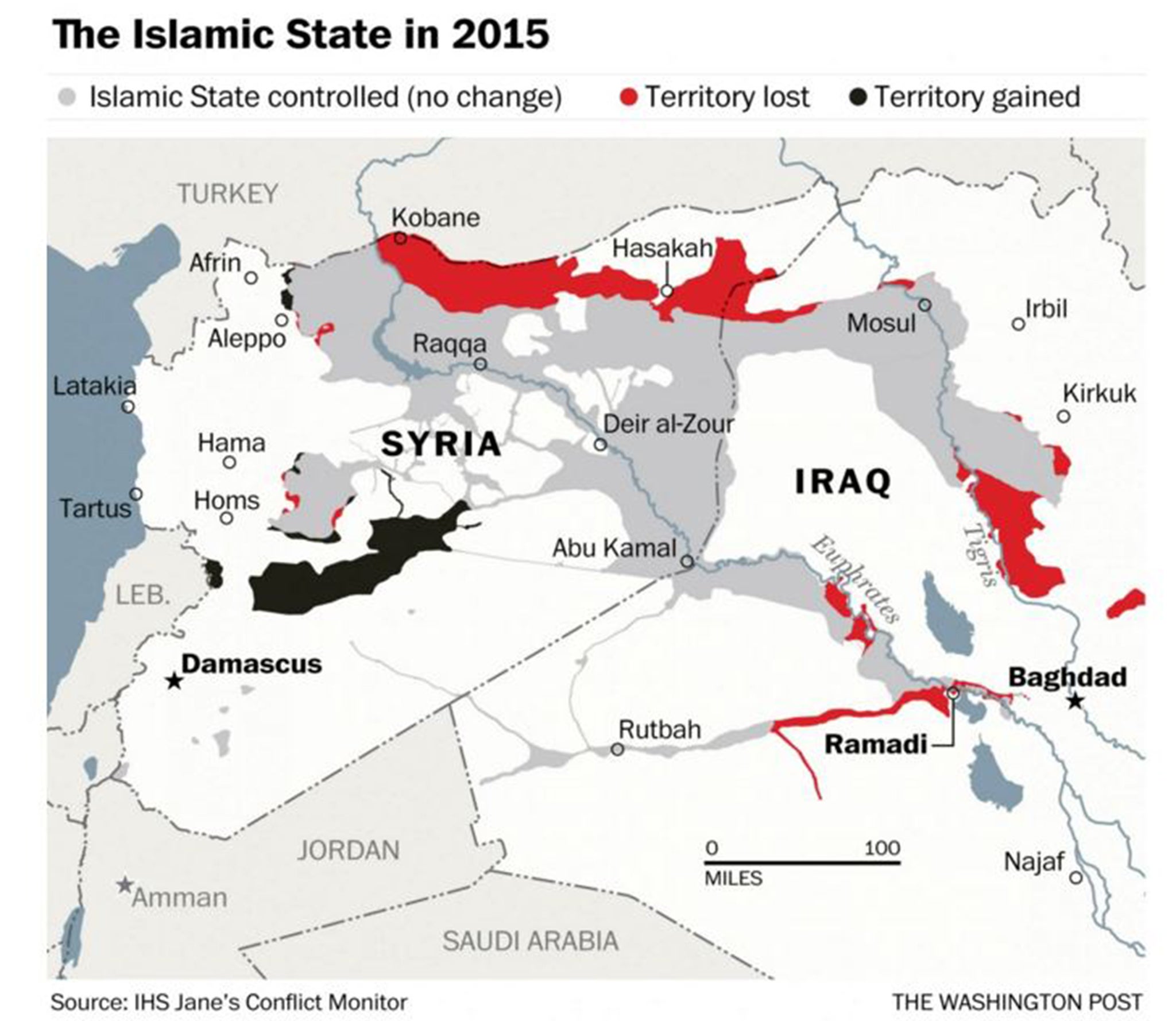Isis video featuring new British killer is just a crude attempt to deflect attention from military failures, expert claims
The video features an English-speaking killer leading the sickening execution of five men

Your support helps us to tell the story
From reproductive rights to climate change to Big Tech, The Independent is on the ground when the story is developing. Whether it's investigating the financials of Elon Musk's pro-Trump PAC or producing our latest documentary, 'The A Word', which shines a light on the American women fighting for reproductive rights, we know how important it is to parse out the facts from the messaging.
At such a critical moment in US history, we need reporters on the ground. Your donation allows us to keep sending journalists to speak to both sides of the story.
The Independent is trusted by Americans across the entire political spectrum. And unlike many other quality news outlets, we choose not to lock Americans out of our reporting and analysis with paywalls. We believe quality journalism should be available to everyone, paid for by those who can afford it.
Your support makes all the difference.The latest execution video released by militants loyal to the so-called Islamic State is a crude attempt to deflect attention away from the terror group’s recent territorial loses in Syria and Iraq, an expert has claimed.
Speaking to The Independent, Shashank Joshi, Senior Research Fellow at the Royal United Services Institute, said the sickening footage of five masked jihadis murdering men accused of being spies was most likely “a response to ISIS’ failures”.
The video features a militant who speaks with a southern English accent making threats against Britain before brutally killing a man crouched at his feet by shooting him in the head. The jihadi boasts that Prime Minister David Cameron was “arrogant and foolish” for giving the go ahead to carry out air strikes in Syria, adding: “Only an imbecile would dare to anger a people who love death the way you love life.”
The footage also shows an English-speaking child aged around six dressed in military fatigues vowing to “kill the kuffar [non-believers] over there”.
“I think it is a reasonable speculation to suggest it is a response to ISIS’s failures in recent weeks,” Mr Joshi said. “I would say they are under pressure – they are under pressure particularly with the loss of Ramadi but also more generally the failure to succeed in any of their major offensives.”

Mr Joshi said intensive airstrikes on the group’s Syrian de facto capital Raqqa and their Iraqi stronghold Mosul had embattled ISIS still further and had likely led to them releasing the video as an effort to change the media narrative and resuscitate efforts to entice new Western recruits.
“Emphasising external operations, emphasising attacks abroad is one way of alleviating that pressure, of remaining prominent in the international media and ultimately reinforcing the ISIS brand, which a lot of this is about.”
“The more they are able to reinforce that brand, the more recruits they get, the more funds they receive, the stronger their caliphate appears, the better they fare in their rivalry with other jihadist groups like Al Qaeda,” he added.
Mr Joshi said, however, that he felt the video’s specific reference to future terror attacks in Britain should not be underestimated and that ISIS would quickly lose credibility if it made threats it had no intention of carrying out.
“We already know that ISIS has sought to attack the UK, both directly and through inspiring followers to take autonomous actions,” he said. “Their aim [with this video] is to terrorise rather than to convey novel information.“
Speaking more broadly on ISIS’ propaganda aims, Mr Joshi said its approach was “twin headed” – both by claiming relevance through attacks on a foreign enemy and also by seeking to present themselves as a proto-state able to control vast swathes of the Middle East.
“In a way ISIS can switch between those objectives as is convenient…if it is suffering loses on one front it can direct its attention elsewhere,” he said.
“That’s a strength because if it loses its territory in Iraq and Syria that would be an enormous blow – and it was a blow to lose Ramadi. But if it can prosecute attacks like Paris and show its ability to repeat these – the biggest mass casualty attacks on Western soil for many years – I think that will do wonders for the brand. But what really matters is having the ability to follow-up on these threats.”
“People know they are suffering loses. Particularly those under their rule know perfectly well the reality of the chaotic nature of ISIS governance of these areas but ultimately if they can remain relevant as the world’s preeminent jihadist group, eclipsing Al Qaeda, that’s going to mean their brand is relevant for a long time to come.”
The latest ISIS video, which was released by the group’s Raqqa-based propaganda wing and lasts 10 stomach-churning minutes, is the first to feature an apparently British killer since the death of the terror group’s executioner-in-chief, Mohammed Emwazi.
Emwazi, better known in the UK media as Jihadi John, was killed by a US drone strike in November but it appears ISIS has wasted no time in finding a replacement. The new executioner, who the British government says it is working hard to identify, appears to be an attempt by ISIS to remind its enemies of the conveyor belt of international killers under its charge.
“Any terrorist group choses its messengers carefully with an eye on the target audience. Much like Mohammed Emwazi there’s a sense of terrorising one’s audience through familiarity,” Mr Joshi said. “The use of a native speaker is useful. It means the message resonates in a more frightening way with the audience than if there was a more alien interlocutor…this is an effective instrument of propaganda,” he added.
Mr Joshi’s comments were supported by the Foreign Office who said the video was nothing more than “Isis propaganda” designed “to divert attention away from its recent military failures in Iraq and its inability to look after the citizens in the areas it controls”.

Intelligence officials are now expected to use voice analysis to try and work out the identity of the British terrorist who appeared alongside several other masked militants executing five Syrian men accused of working as spies for Britain.
The video, which cannot be independently verified, ends with a trailer for a further execution and a brief clip of the young child wearing militant garb.
The child speaks in a British accent though it is possible he picked that up while living among British jihadis in Syria. There has also been extensive speculation that he resembles the son of British national Grace 'Khadijah' Dare who joined the terror group in 2013 and has shared several images of her young boy Isa posing in Syria alongside AK47 rifles and ISIS' chilling black and white banner.
Join our commenting forum
Join thought-provoking conversations, follow other Independent readers and see their replies
Comments